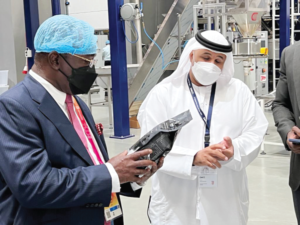CASHEW STAKEHOLDERS CALL FOR RESEARCH INTO DEVELOPING NEW AND IMPROVED CASHEW VARIANT
Stakeholders of the cashew industry have called on governments, and major development partners to increase investment in research into cashew production to sustain the industry.
This call was made at the 15th Annual African Cashew Alliance (ACA) Cashew Conference which started last Wednesday fully online.
According to the stakeholders, the growing nature of the cashew industry calls for a more sustainable cashew supply chain of which sustainable production is very key.
Speaking on a plenary session, the panel, made up of experts and actors of the cashew industry, believed it was important that farmers are able to produce more cashew fruits and nuts per tree than what they produce now, sustain the lifespan of tress and improve quality. These, they believed, was possible through research.
Executive Director of the Competitive Cashew Initiative (ComCashew), Rita Weidnger, explained that, for a sustainable cashew production, it is important for proper research to be conducted into increasing the productivity of producers, and improved cashew variants to maximise the cashew production potentials of West Africa in particular.
Director of procurement at Intersnack International, Wim Weidnger, added that proper research is needed to develop a cashew variant “by shaking the tree”.
“There is the need for a cashew variant where fruits will not just drop from the tree but can remain on the tree even when shook. With this, farmers will not have to go out every day to pick fruits. This will also improve the quality of fruits and nuts produced,” he explained
Speaking on a panel discussion on Sustainable production Thursday at the same conference, a cashew value chain specialist at Stella Maris Mtwara University Collage, Professor Peter Masawe, stressed on the need for research to be conducted into producing resistant cashew varieties that are able to resist pests and diseases while also producing good fruits and quality nuts in West Africa.
“Even though there is currently no major outbreak of pests and diseases, West African needs to prepare to combat such pests and diseases when it happens. This requires extensive research into developing resilient cashew variants,” he said.
He however indicated that cashew research and experimentation take longer years, is very demanding and requires a lot of human and financial resources and thus requires investment from governments and development partners.
“Cashew experimentation requires a lot of years to be completed. It also requires large area, improved technology, and a lot of financial and human resources,” he said
“Each country needs to invest more and encourage research into cashew production, developing new variants and supporting farmers,” he added.
On her part, Director of Production at Cote d’ Ivoire’s Cashew and Cotton Council, Dr Ouattara Gnire Mariam, said production, especially small holder production, is the heart of the cashew industry and so requires proper investment, particularly in research, from governments and development partners, while also supporting factories to increase local processing.
Director of Crop Services at Ghana’s Ministry of Food and Agriculture (MOFA), Seth Osie- Akoto, said Ghana is in advanced stage in cashew research.
He said the country has, for the past fourteen years, been committed to research into developing improved cashew variants led by the Cocoa Research Institute of Ghana (CRIG).
He highlighted that the country is currently benefiting from the many years of cashew research in the form of higher and quality yields compared to its West African cashew producing counterparts.
“Ghana is already supporting countries like Benin, Togo, and Senegal in researching into new cashew variants and production techniques,” he said.
He called on African countries to dedicate resources into cashew research.
Source: myjoyonline.com










More Stories
GHANA-BASED NICHE COCOA TO OPEN FIRST NORTH AMERICAN LOCATION IN FRANKLIN
GHANA TURNS TO DUBAI TO MARKET COCOA, COFFEE GLOBALLY
FAIRTRADE AFRICA ENGAGES COCOA COOPERATIVES IN GHANA TO BOOST PRODUCTION